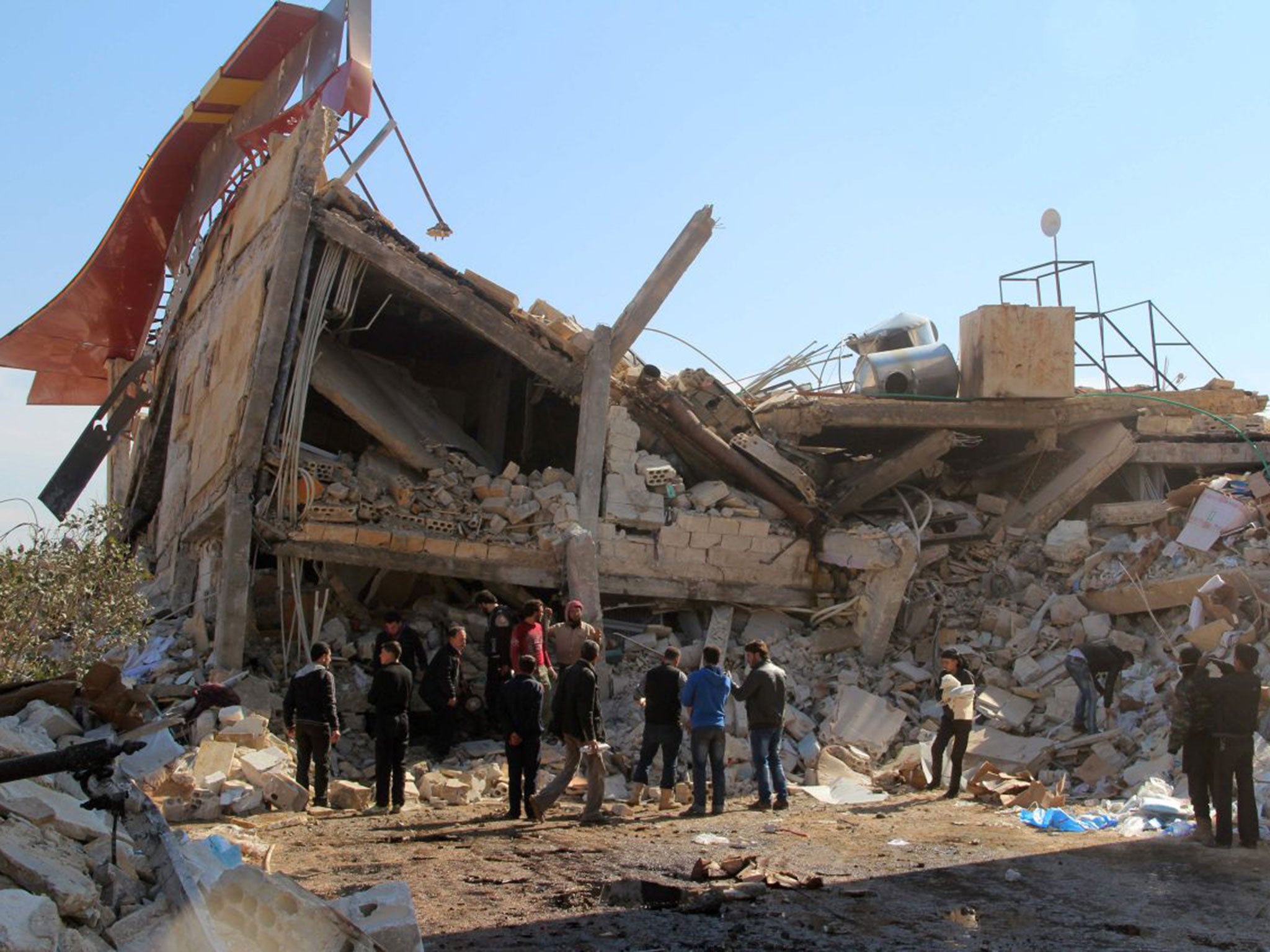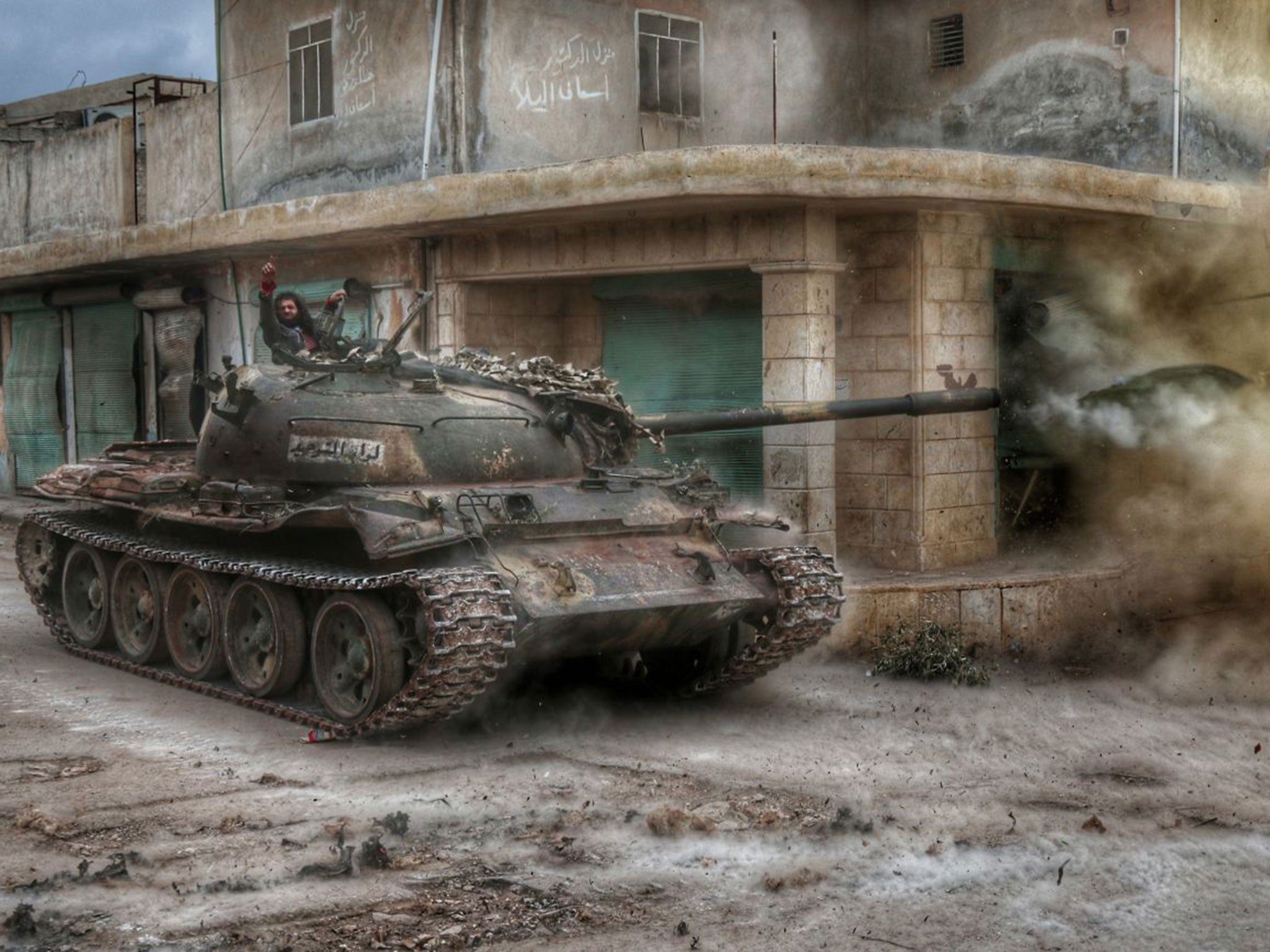Russia accused of squeezing in final round of bombing against rebels before ceasefire
The ceasefire agreement stipulates that international air strikes against terrorist groups can continue

Your support helps us to tell the story
From reproductive rights to climate change to Big Tech, The Independent is on the ground when the story is developing. Whether it's investigating the financials of Elon Musk's pro-Trump PAC or producing our latest documentary, 'The A Word', which shines a light on the American women fighting for reproductive rights, we know how important it is to parse out the facts from the messaging.
At such a critical moment in US history, we need reporters on the ground. Your donation allows us to keep sending journalists to speak to both sides of the story.
The Independent is trusted by Americans across the entire political spectrum. And unlike many other quality news outlets, we choose not to lock Americans out of our reporting and analysis with paywalls. We believe quality journalism should be available to everyone, paid for by those who can afford it.
Your support makes all the difference.Russia has denied launching air strikes on civilian areas and rebel strongholds in the run-up to a fragile ceasefire due to start at midnight (10pm GMT).
An alliance of anti-government rebels previously said they would only abide by terms drawn up by the US and Russia if Vladimir Putin’s forces stopped bombarding their territory.
Bashar al-Assad has declared all armed opposition groups to be “terrorists” but some have been supported with funding, training and air cover from the US-led coalition.
Russia was blamed for air strikes recorded by the UK-based Syrian Observatory for Human Rights that allegedly hit rebel-held areas in Eastern Ghouta, northern Homs province and western Aleppo province overnight.
“It's more intense than usual,” Observatory head Rami Abdel Rahman told the AFP news agency.
“It's as if they [the Russians and the government] want to subdue rebels in these regions or score points before the ceasefire.”
During a call with journalists, Putin's official spokesperson Dmitry Peskov said it was not “the first time this observation group has published unconfirmed information that isn't backed up by facts.”
He confirmed Russia would continue its operations against “terrorist organisations” through the upcoming truce, adding: “This is one of the conditions of an initiative agreed by the presidents of Russia and the United States."
All parties subject to the ceasefire agreement will still be allowed to launch operations against Isis, Jabhat al-Nusra and other UN-designated terrorist groups.
At a meeting with his Federal Security Service on Friday, Putin was quoted as saying that the “decisive fight against them will certainly continue.”
The Kremlin has insisted Isis is its main target but opposition groups and Western leaders have alleged its strikes have mainly targeted areas controlled by the opposition, killing countless civilians.
Putin’s intervention to support the Syrian regime in September has been credited with tipping the balance of power in the five-year long conflict, supporting significant advances by government forces that saw several villages reportedly seized from Isis in Aleppo on Friday.

The state-run Sana news agency claimed regime troops gained control of villages near the town of Khanaser, which they recaptured from the so-called Islamic State the previous day.
The Britain-based Syrian Observatory for Human Rights reported that two villages were taken by the government, which was working to open the only road linking the city of Aleppo with central and western Syria.
The U.N. Security Council was expected to vote on a draft resolution endorsing the “cessation of hostilities” in Syria this afternoon, hours ahead of its implementation.
An alliance of opposition and rebel groups said that around 100 factions had agreed to abide by the ceasefire.
Isis, the al-Qaeda linked Jabhat al-Nusra group and other militias designated as terrorist groups by the UN have not been invited to peace talks and are not bound by the truce.
The agreement stipulates that operations against UN-defined terrorist groups may continue, as well as the “proportionate use of force” for self-defence, diminishing hopes for an effective half in the conflict that has so far killed more than 250,000 people.
Additional reporting by agencies
Join our commenting forum
Join thought-provoking conversations, follow other Independent readers and see their replies
Comments